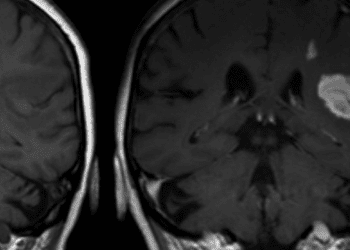Pharmacist-led educational intervention decreases inappropriate medications for older adults
1. Pharmacist-led education resulted in greater discontinuation of sedative-hypnotic drugs compared to care as usual.
Evidence Rating Level: 1 (Excellent)
Study Rundown: Inappropriate prescribing of medications such as benzodiazepines, antihistamines, and anti-inflammatory drugs for older adults can lead to adverse events and hospitalization. Targeted educational efforts to deprescribe these medications have been successful, and thus, this study sought to understand the effect of a pharmacist-led educational intervention to decrease inappropriate medications. In this randomized clinical trial, a pharmacist-led educational intervention directed towards patients and primary care physicians led to decreased prescription of sedative-hypnotic drugs, glyburide, and anti-inflammatory medications compared to care as usual. These findings were sustained after following patients for 6 months.
This study suggests that pharmacist-led educational interventions for deprescribing are likely to effective, though some limitations to the study should be noted. Medications such as anti-inflammatories are available to patients over-the-counter, so they may have not been captured through the pharmacy’s database, limiting the true usage of these medications among the study’s cohort. Additionally, patients were followed for 6 months after randomization and longer term follow-up will be necessary to determine whether some patients discontinue medications later or restart medications.
Click to read the study, published today in JAMA
Relevant Reading: Reduction of Inappropriate Benzodiazepine Prescriptions Among Older Adults Through Direct Patient Education
In-Depth [randomized controlled trial]: Patients were recruited from February 2014 to September 2017 with follow-up through February 2018. Patients were included if they were aged 65 years and older and were prescribed at least one of four Beer Criteria medications. 489 eligible patients were included and randomized to the pharmacist-led educational intervention (n = 248) or usual care (n = 241). In the intervention group, 42.7% (n = 106) of patients had a complete cessation of inappropriate medication fills compared to only 12.0% (n = 29) of patients in the control group (mean difference 31%; CI95 23%-38%, number needed to treat = 3). For patients taking sedative-hypnotic drugs, 63 (43.2%) were able to discontinue the medication in the intervention group compared to 14 (9%) in the control group (risk difference 34%, CI95 25%-43%). 77 patients in the intervention group who were taking sedative-hypnotic medications initiated tapering and 29 (38%) reported withdrawal symptoms.
Image: PD
©2018 2 Minute Medicine, Inc. All rights reserved. No works may be reproduced without expressed written consent from 2 Minute Medicine, Inc. Inquire about licensing here. No article should be construed as medical advice and is not intended as such by the authors or by 2 Minute Medicine, Inc.







